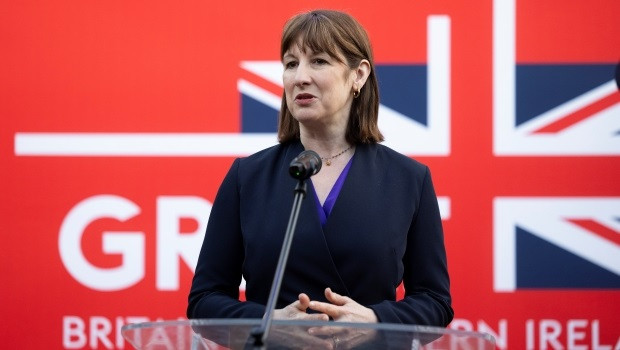
Source: Sharecast
Addressing a packed House of Commons, Rachel Reeves said she had made the "necessary" choices to "fix the foundations of our economy" in April’s budget, and insisted: "The priorities of this spending review are the priorities of working people."
She confirmed that government department budgets will grow by 2.3% per year on average in real terms over the three years of the review, to 2028/29, although most of that is due to spending on defence and health.
Defence spending is set to rise to 2.6% of GDP by April 2027. The NHS will see an average annual 3% increase in funding from 2025/26 to 2028/29, although overall day-to-day spending by the Department of Health and Social Care will rise by a more modest 2.8% per year.
Reeves said she was making a "record cash investment" in the NHS.
It means that other departments will see their budgets squeezed, however, including the Foreign Office and Home Office, over the course of parliament.
Reeves is borrowing heavily to invest in infrastructure and capital projects, as she looks to kick-start sluggish economic growth.
On energy, she reiterated previously-announced investments in Sizewell and Rolls-Royce’s small modular reactors, as part of the "biggest rollout of nuclear power for half a century".
Carbon capture projects in Aberdeenshire and Humberside were also announced.
"We understand that energy security is national security," Reeves told MPs.
She also confirmed a £39bn investment in housing, which she called the "biggest cash injection into council and affordable housing for 50 years". She added that the sector had been "neglected for too many decades".
On education, the chancellor said the core schools budget would receive an additional £4.5bn a year by 2028/29. A further £1.2bn a year by the end of the spending review period was also pledged, "to support over 1m young people into training and apprenticeships".
Reeves also confirmed plans to stop using hotels to house asylum seekers within this parliament.
She concluded by claiming that the spending review would deliver "the priorities of the British people": security, economic growth and health.
"I have made my choices," she said. "In place of chaos, I choose stability. In place of decline, I choose investment. In place of pessimism, division and defeatism, I choose national renewal."
Shadow chancellor Mel Stride said the spending review was "not worth the paper that it is written on" and said future tax rises were now inevitable.
Rain Newton-Smith, chief executive of the CBI, said the spending review "signals a down payment on hardwiring the growth mission into government priorities.
"Against a challenging backdrop, the choice to prioritise investment in clean energy and R&D, as well as delivering a much-needed boost to housing, transport and infrastructure, is the smart plan that will raise the long-term ceiling of the economy."
Susannah Streeter, head of money and markets at Hargreaves Lansdown, said markets had reacted "calmly" to the review.
"The pound has flexed its muscles against the dollar, amid hopes for better growth prospects ahead. The FTSE 100 is hovering near a record high, while the domestically-focused FTSE 350 has gained ground. Housebuilders are among the biggest gainers today."
But she continued: "The chancellor is still walking a tightrope. The economy is hemmed in by slowing global growth due to tariffs, reducing the tax take. Defence spending is rising, borrowing costs remain elevated, and there’s continuing political clamour for more concessions for vulnerable groups."